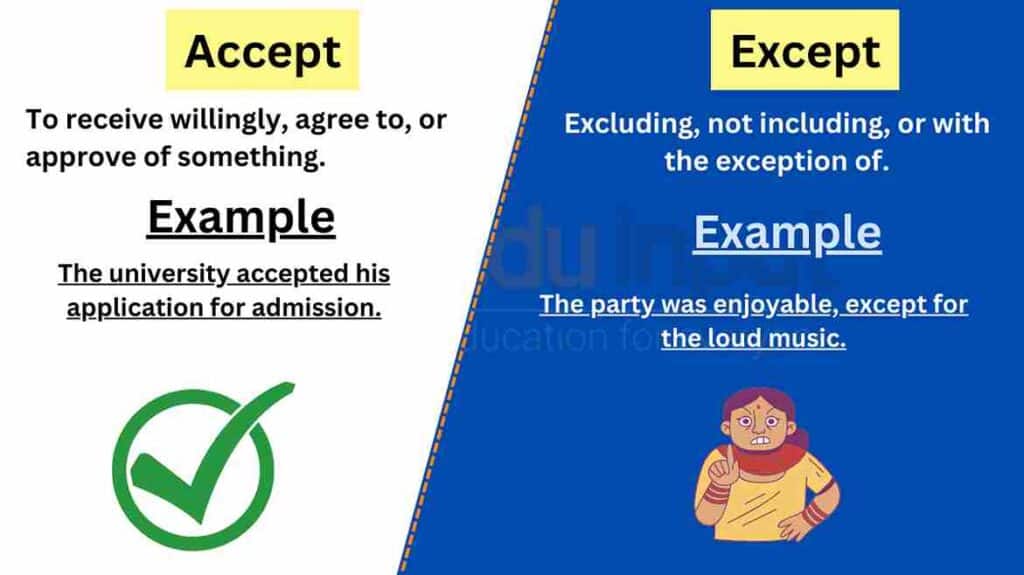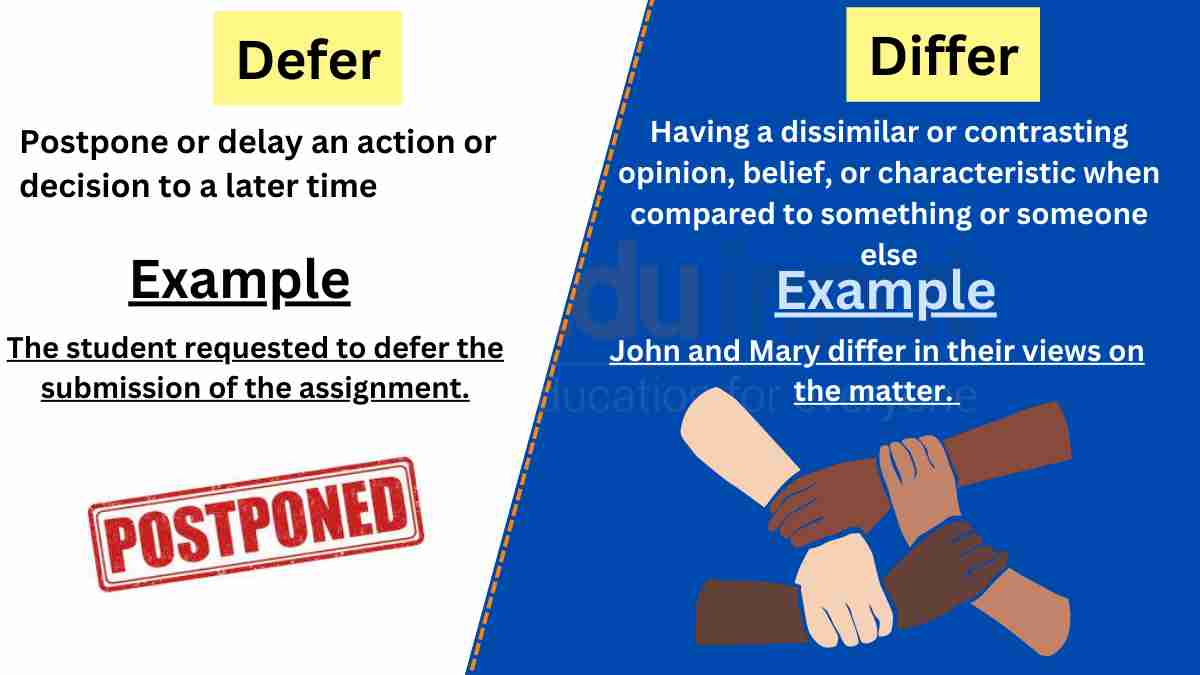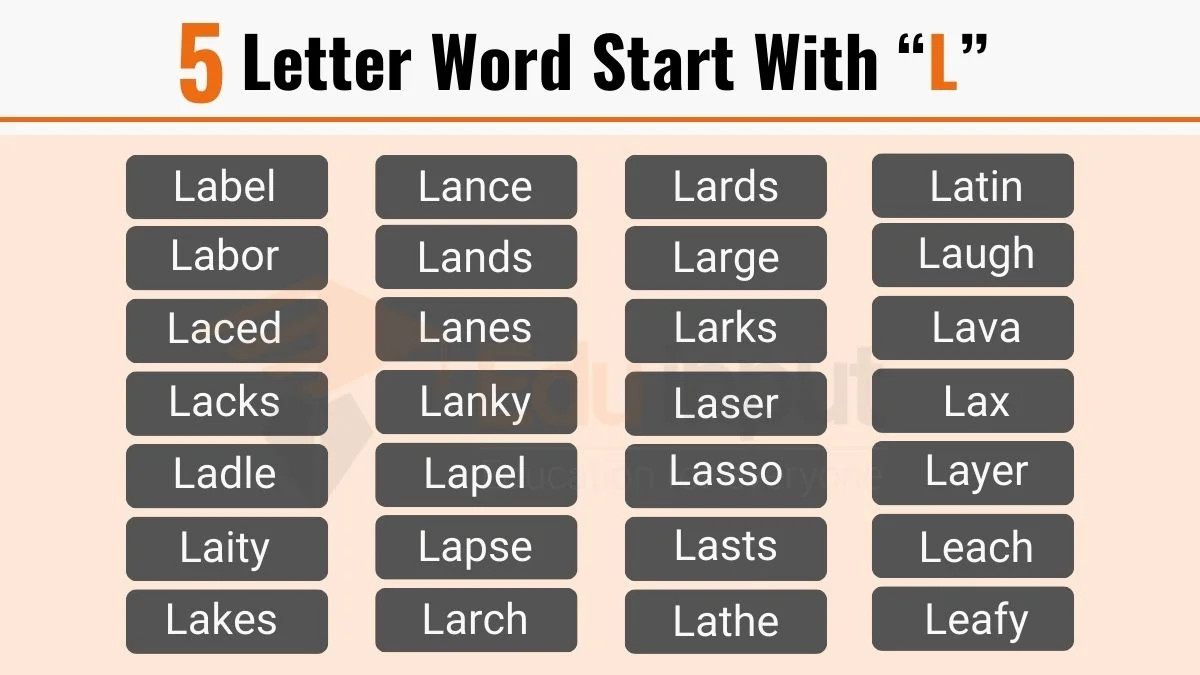Accept vs Except-Difference Between And Examples
Clear communication in English requires a firm grasp of words that sound similar but have distinct meanings. Two such words, “accept” and “except,” often cause confusion due to their resemblance. In this article, we will explore the definitions, differences, and grammatical aspects of these words.

Meanings and Examples
Accept Meaning
Accept is a Verb. The meaning of accept is to receive willingly, agree to, or approve of something.
Accept Examples
a) She gladly accepted the invitation to the party.
b) The university accepted his application for admission.
c) They accepted the offer without hesitation.
d) The teacher asked the students to accept the challenge and strive for success.
e) He couldn’t accept the fact that he had failed the exam.
Except Meaning
Except is used as Preposition or Conjunction. The meaning of except is excluding, not including, or with the exception of.
Except Examples
a) Everyone attended the meeting except for John.
b) I like all fruits except for bananas.
c) The store is open every day except Sundays.
d) She knows how to play all the musical instruments except the violin.
e) The party was enjoyable, except for the loud music.
Differences Between Accept and Except
| Criteria | Accept | Except |
| Meaning | To receive willingly or agree to | Excluding or with the exception of |
| Verb form | Accept | Except |
| Noun form | Acceptance | Exception |
| Pronunciation | əkˈsɛpt | ɪkˈsɛpt |
| Usage | General, wide-ranging | Specific, exclusionary |
Grammatical Aspects
Noun:
- Accept: The noun form of “accept” is “acceptance,” which refers to the act of accepting or approving something.
- Except: The noun form of “except” is “exception,” representing something that is excluded or does not conform to a rule.
Pronoun:
- Accept: “Accept” is not used as a pronoun.
- Except: The pronoun form of “except” is “except oneself.”
Verb:
- Accept: “Accept” functions as a verb, denoting the act of receiving willingly or agreeing to something.
- Except: “Except” can serve as a verb in rare cases, meaning to exclude or leave out something.
Adjective:
- Accept: “Accept” does not have an adjective form.
- Except: The adjective form of “except” is “exceptional.”
Adverb:
- Accept: “Accept” does not have an adverb form.
- Except: The adverb form of “except” is “expectedly.”
Usage in a Paragraph
In a competitive job market, it is essential to accept constructive feedback to improve one’s skills. However, it is crucial to note that accepting feedback does not mean accepting all criticism without discernment. Except for valid suggestions, unfounded criticisms should not discourage individuals from pursuing their goals. Embracing constructive feedback while disregarding baseless negativity can lead to personal growth and professional success.
Distinguishing between “accept” and “except” is vital for effective communication. “Accept” entails receiving willingly or agreeing to something, while “except” signifies exclusion or making an exception. Understanding these differences helps convey thoughts accurately and facilitates better comprehension in various contexts.







Leave a Reply